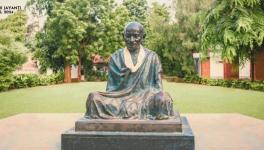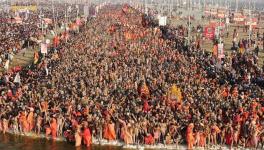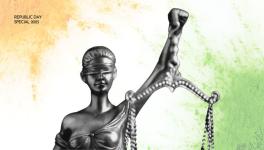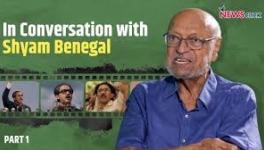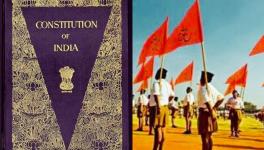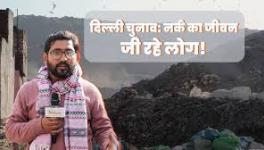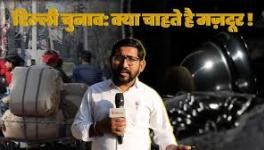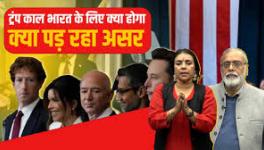To Whom Does This Land Belong?
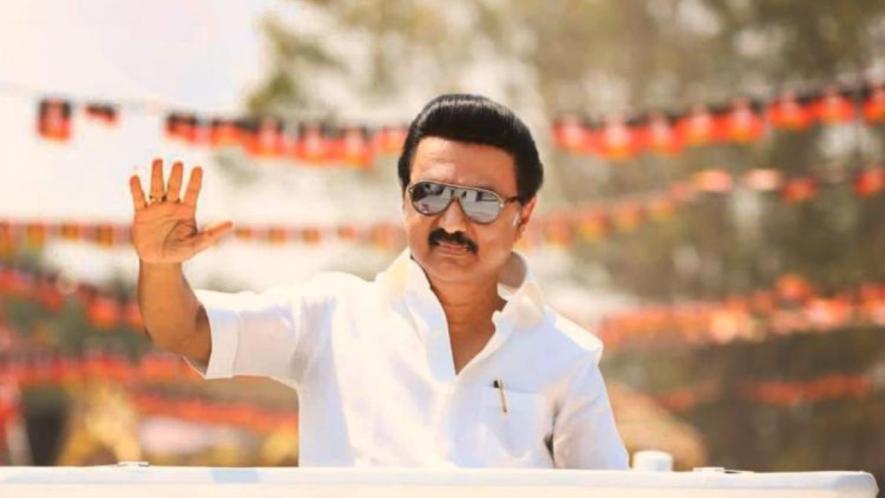
Image Courtesy: Wikimedia Commons
Tamil Nadu Chief Minister MK Stalin, based on new research about pre-modern history, stated that archaeologists have concluded that the Iron Age first began in Tamil Nadu. Melting iron was introduced in Tamil Nadu 5,300 years ago. Precise dating indicates iron was first introduced in the region in 3345 BC. Stalin emphasised this finding to be pivotal to understanding the historical timeline of the Indian subcontinent and said proudly that “I’m constantly saying that the history of India will be written from Tamil Nadu,” highlighting the research’s potential to reshape historical narratives. Should it matter so much to present time?
In a way, proving that ‘we’ were the ‘first comers’ here, many ‘nationalist’ ‘ethnic’ tendencies used it to dominate the society in various countries. One recalls that in the Sinhala assault, Tamil (Hindus) in Sri Lanka had to suffer a lot at the hands of Sinhala ethnic nationalism, which claimed that Sinhala were the first comers in that Island so the nation belonged to them.
In India, Hindu nationalism is no different. It did raise the bogey of ‘foreign religions’ -- Islam and Christianity. It regarded Hindus as synonymous with Aryans and went on the claim that Aryans were the original inhabitants of this land. This claim was articulated by M.S. Golwalkar, the second sarsanghchalak (supremo) of Rashtriya Swayamsevak Sangh or RSS, who in his book, We or Our Nationhood Defined, wrote that, “We—Hindus—have been in undisputed and undisturbed possession of this land for over 8 or even 10 thousand years before the land was invaded by any foreign race” and therefore, this land, came to be known as Hindustan, the land of the Hindus” (Golwalkar, 1939, page 6).
This was in contrast to Lokmanya Gangadhar Tilak, who had said that Aryans came from the Arctic region, ‘Arctic Home of Vedas’. Golwalakar solved this dilemma without contradicting Tilak by saying that the Arctic area itself was here in the Orissa-Bihar region, which later shifted to North, ...that then it moved north-east and then by a sometimes westerly, sometimes northward movement, it came to its present position. If this be so, did we leave the Arctic Zone and come to Hindustan or were we all along here and the Arctic Zone left us and moved away northwards in its zigzag march?
Such acrobatics had to be performed to prove that the Aryans are natives of this land. If this is not emphasised, the propaganda against Muslims that they came from outside falls to the ground and the whole purpose is defeated.
Many theories prevail about this. Many European scholars, including Indophile Max Mueller believed that Aryans had invaded India. This theory is baseless as it was the era of pastoral society, where migrations were the norm and not invasion. Invasions came later with the formation of kingdoms. The other logical argument, based on linguistics and geological evidence, argued that Aryans came here in a series of waves of migration.
Aryans being the natives of this land had a major obstacle to overcome, in the form of the Indus Valley Civilisation, which dates before the arrival of Aryans here. This civilisation was distinctly different from the Aryan habitations and was there before the Aryans came. It had an urban setting unlike the Aryan habitations. By undertaking a lot of acrobatics, an attempt was made to concoct a seal with horse, to have been found in that Indus Valley region. As per a Frontline magazine article, the horned bull seal was modified to look like a horse, the symbol of Aryan culture. It was a computer distorted image of a Unicorn.
The whole race theory stands discredited today. It was an attempt by colonial powers to show their racial superiority giving them the right to rule. On similar lines, the Brahmanical ideology also claimed Brahmins and upper caste to be descendants of a superior race and hence were entitled to a superior position in society.
The Indus Valley Civilisation preceded the arrival of the Aryans here. A natural calamity wiped out this civilisation and many of its inhabitants moved down South. So, where do we stand today vis-a-vis the Aryan debate and Indus Valley Civilisation?
The earlier archaeological and linguistics studies have been supplanted by the impeccable DNA genetic studies. ‘Population genetics’ is the most foolproof method to understand pre-modern societies.
Just a few years ago, Tony Joseph, an Indian author, (in his book, Early Indians) put together population genetics studies along with the prevalent linguistics and archaeological findings. This book shows that we are all mixed up. Migration to India took place in various stages. Joseph outlines that it was 65,000 years ago that homo sapiens made their way to India from South Africa.
Read Also: Seeing History the Right Side Up: Excerpts from Early Indians
Citing DNA studies, Joseph shows that subsequent large migrations to India took place between 7000 and 3000 BCE and lastly, between 2000 to 1000 years ago, the pastoralists came from Central Asian Steppe. As such, Aryan and Dravid stand for a group of languages rather than distinct races.
The Bharatiya Janata Party (BJP)-led Central government has formed a committee to document the 12,000-year-old history of India. As things are so crystal clear from the DNA-Genetic studies about the fact which says we are all mixed up people; why such a committee? The idea is to prove that Hindus (Aryans) are the original inhabitants of this land. After the result of population genetics, not much remains to dig into this issue except for claiming the ‘land’ and showing bigger rights here.
Society has gone through many transformations over the centuries. The pastoral society, the boundaries of kingdoms and now national boundaries are what is the reality. One can stand with poet Rabindranath Tagore to see the impact of national boundaries to dream of a world without boundaries, which seems ultra-Utopian today.
The assertions of ‘first comer’ are the hallmark of sectarian nationalism. Such tendencies are contrary to the values of the Indian Constitution and the United Nations Declaration of Human Rights. Equality of all citizens, irrespective of language and religion, is what we need to aspire for the future. Digging into the past with warped ideology should have no place in today’s politics, it can best be left for academics and professionals of those disciplines rather than be made the base of political ideology.
The writer is a human rights activist, who taught at IIT Bombay. The views are personal.
Get the latest reports & analysis with people's perspective on Protests, movements & deep analytical videos, discussions of the current affairs in your Telegram app. Subscribe to NewsClick's Telegram channel & get Real-Time updates on stories, as they get published on our website.









